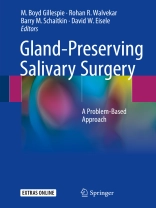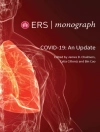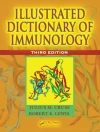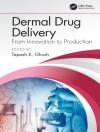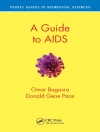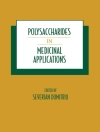Salivary Endoscopy is a rapidly emerging field that has revolutionized the management of non-neoplastic diseases of the salivary gland, such as salivary stones, sialadenitis, and salivary duct stenosis. With the emergence of endoscopic access to the salivary ductal system, several procedural and technical innovations have emerged that have now permitted gland preservation surgery for these pathologies. As more centers and physicians are adopting this rapidly emerging and evolving procedure, there is a need for source of literature that provides current concepts and detailed technical descriptions of the procedures that involve gland preservation surgery. This text intends to capture the current concepts among experts and in literature regarding the management of non-neoplastic salivary gland diseases. The book also focuses on steps of surgical management and technical pearls while providing detailed information on the decision-making process when emcompassing the diversity of clinicalpresentation, intra-operative decision-making and post op care. Gland Preservation Surgery provides high quality illustrations, clinical and operative images, and videos that serve as an online resource to salivary gland surgeons and endoscopists with varying experience and expertise.
İçerik tablosu
Patient Evaluation and Diagnosis.- Patient evaluation and examination.- Salivary Gland imaging.- Fine Needle Aspiration.- Diagnostic and in-office sialendoscopy.- Management of Obstructive Salivary Disorders.- Parotid Stones.- Submandibular Stones.- Ductal Scar and Stenosis.- Radio-iodine induced Salivary Duct Disease.- Trauma Part.- Management of Non-obstructive Salivary Disorders.- Acute and Chronic Salivary Infection: Ig G Sialadenitis.- Autoimmune: Sjögren’s Disease.- Juvenile Recurrent Parotitis.- Benign and Idiopathic Salivary Swelling (Sialadenosis; Masseteric Hypertrophy; etc.).- Management of Benign Salivary Masses.- Gland-preserving surgery for benign neoplasms (extracapsular dissection; robotic/facelift/transoral approaches).- Non-neoplastic salivary masses (Vascular Malformations; Cysts; etc.).- Management of Salivary Medical Conditions.- Xerostomia.- Sialorrhea.- Frey Syndrome.- First-Bite and Neurogenic Syndromes.- Brining it All Together: Expert Opinions.- Case Vignettes by Experts.- Pearls and Perils of Salivary Endoscopy.- Endoscopic equipment: nuances and technical points.- Coding and Billing.- Future Directions: Salivary Endoscopy Community.
Yazar hakkında
M. Boyd Gillespie is Professor and Chair of Otolaryngology-Head & Neck Surgery at UT-Memphis. He is a graduate of Johns Hopkins University School of Medicine where he completed residency and fellowship. Dr. Gillespie earned a Masters in Clinical Research, and is board certified in Otolaryngology and Sleep Medicine. He was among the first U.S. surgeons to perform salivary endoscopy and has educated many of the surgeons in the U.S. who currently perform the technique. He has published over 120 academic papers including the New England Journal of Medicine study of hypoglossal nerve stimulation for sleep apnea.
Dr. Walvekar earned his doctoral degree from the University of Mumbai. After graduating in 1998, he completed a residency in Otolaryngology and Head Neck Surgery at the TN Medical College & BYL Nair Charitable Hospital, Mumbai, India, with triple honors. Subsequently, he completed two head neck surgery fellowships, and trained at at the Tata Memorial Hospital, Mumbai, which is India’s most prestigious cancer institute, catering to over 5000 new head neck cancer registrations a year. After completing an Advanced Head Neck Oncologic Surgery fellowship at the University of Pittsburgh, he became an Assistant Professor in Head Neck Surgery within the Department of Otolaryngology Head Neck Surgery at the University of Pittsburgh/VA Medical Center, prior to joining the LSU Health Sciences Center in July 2008. His clinical interests are head neck surgery and salivary endoscopy, distant access thyroid surgery and robotic surgery. His research interests include evaluating prognostic markers and clinical outcomes of head and neck cancer therapy and treatment of salivary gland disorders. As an Eminent Scholar, Dr. Walvekar holds the title of Mervin L. Trail Endowed Chair in Head & Neck Oncology and is also the Director of the Salivary Endoscopy Service, Co-Director of the ENT Service at University Medical Center New Orleans, and Director of the Oral Cancer Screening Program.
Dr. David W. Eisele is the Andelot Professor and Director of the Department of Otolaryngology – Head and Neck Surgery at Johns Hopkins University School of Medicine in Baltimore, Maryland. Dr. Eisele is also Professor of Oncology, and Professor of Anesthesiology and Critical Care Medicine at Johns Hopkins. Dr. Eisele is a Director of the American Board of Otolaryngology and a member of the NCCN Head and Neck Cancer Panel. He has served as President of the American Head and Neck Society, and as Vice-President of the Triological Society.
